Orlando Rossardi | |
|---|---|
 | |
| Born | September 5, 1938 Havana, Cuba |
| Occupation | Poet, playwright, researcher |
Orlando Rossardi (born September 5, 1938) is a Cuban poet, playwright and a researcher in Latin American literature.
Orlando Rossardi | |
|---|---|
 | |
| Born | September 5, 1938 Havana, Cuba |
| Occupation | Poet, playwright, researcher |
Orlando Rossardi (born September 5, 1938) is a Cuban poet, playwright and a researcher in Latin American literature.
Orlando Rossardi (pseudonym of Orlando Rodríguez Sardiñas) was born in Havana, Cuba in 1938. He left the island in 1960, and has since been living in Spain and in the United States.
Orlando Rodríguez Sardiñas obtained a Ph.D. at the University of Texas, Austin, and taught at the University of New Hampshire, Wisconsin and Miami Dade College in Florida.
He began working in 1984 for Radio Martí in Washington, D.C, and later at their office in Miami, FL, as programming coordinator and subsequently deputy director, dedicating twenty years of his life to the broadcasting services of the United States Government. [1]
Orlando Rossardi published primarily poetry and his collections include El Diámetro y lo Estero (1964), Que voy de vuelo (1970), Los espacios llenos (1991), Memoria de mí (1996), Los pies en la tierra (2006), Libro de las pérdidas (2008), Casi la voz (2009), Canto en la Florida (2010), Fundación del centro (2011) y Totalidad (2012).
His anthology, La última poesía cubana (1973), is considered by critics the first major work bringing together the Cuban poets both from the island and from exile.
His other works include six volumes of Historia de la Literatura Hispanoamericana Contemporánea (1976) the three volumes on Teatro Selecto Hispanoamericano Contemporáneo (1971), as well as an essay on the Colombian avant garde poet León de Greiff: una poética de vanguardia (1974).
Rossardi is a member of the North American Academy of the Spanish Language (Academia Norteamericana de la Lengua Española) [2] and Correspondent of the Royal Academy of the Spanish Language in Madrid, Spain. His research contributions can be found in encyclopedias, dictionaries, and literary magazines in Spain and Latin America as well as in the United States.
Poetry
Theater
Essays
Cuadernos monográficos
Roberto Fernández Retamar was a Cuban poet, essayist, literary critic and President of the Casa de las Américas. In his role as President of the organization, Fernández also served on the Council of State of Cuba. An early close confidant of Che Guevara and Fidel Castro, he was a central figure in Cuba from the 1959 Revolution until his death in 2019. Fernández also wrote over a dozen major collections of verse and founded the Casa de las Americas cultural magazine.

Juan Gelman was an Argentine poet. He published more than twenty books of poetry between 1956 and his death in early 2014. He was a naturalized citizen of Mexico, country where he arrived as a political exile of the Military Junta.
Consuelo Hernández is a Colombian American poet, scholar, literary critic and associate professor of Latin American studies at American University since 1995.
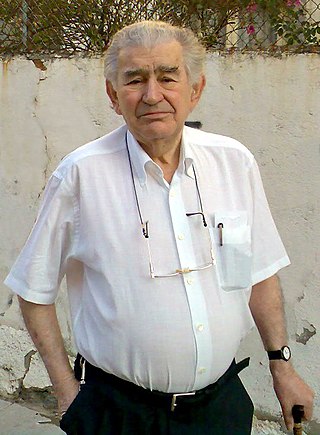
Antonio Gamoneda Lobón is a Spanish poet, winner of the Cervantes Prize in 2006.
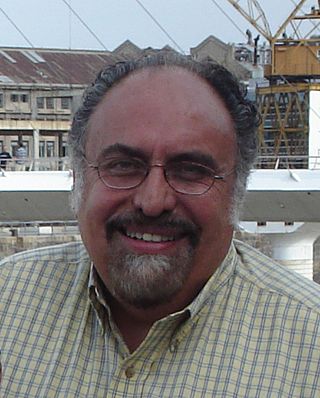
Guillermo Schmidhuber de la Mora is a Mexican author, playwright, and critic.

Juan Antonio Villacañas was a Spanish poet, essayist and critic. In 2015, he was named distinguished son of the city of Toledo.

Llorenzo Vidal Vidal, Majorcan poet, educator and pacifist, founded in 1964 the School Day of Non-violence and Peace (DENIP) a pioneering, non-state, non-governmental, non-official, independent, free and voluntary initiative of Non-violent and Pacifying Education, which is now practised in schools all over the world and in which centres of education, teachers and students of all levels and from all countries are invited to take part. In 2010, the Cercle Universel des Ambassadeurs de la Paix, Geneva (Switzerland), has appointed him Ambassador of Peace.
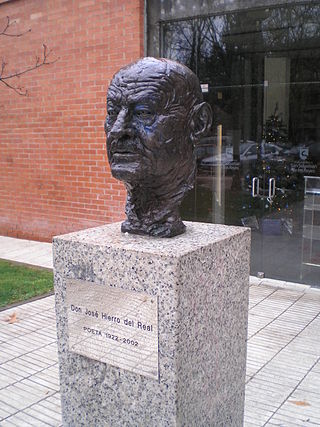
José Hierro del Real, sometimes colloquially called Pepe Hierro, was a Spanish poet. He belonged to the so-called postwar generation, within the rootless and existential poetry streams. He wrote for both Espadaña and Garcilaso magazines. In 1981, he received the Prince of Asturias Awards in Literature, in 1998 the Cervantes Prize and he received many more awards and honours.
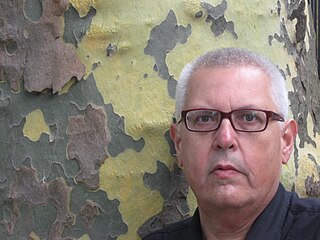
Víctor Rodríguez Núñez is a Cuban poet, journalist, literary critic and translator.
Iván Oñate is an Ecuadorean poet and academic. Oñate was born in on March 17, 1948, in Ambato, Ecuador. He lives in Quito, Ecuador. He has been called “the most original poet of the new generation” by French critics Jean Franco and Jean-Marie Lemogodeuc They further remark that “one must pay attention to his disquieting visions, to his taste for life and vertigo, to his wild revelations mixing anguish and delirium.” He has published eight books of poetry and fiction, and his widely anthologized work has been translated into at least five languages.

Luis Alberto Ambroggio is an Argentine American poet, independent scholar and writer. Full Member of the North American Academy of the Spanish Language and correspondent of the Spanish Royal Academy. His works include award-winning essays, poetry and translations. Influenced by F. Nietzsche, César Vallejo, Jorge Luis Borges, Vicente Aleixandre, his poetry has been described by Pulitzer-prize winner Oscar Hijuelos as:
wise and philosophical. It owns an inimitable cadence, uncommon good sense, and a smoldering depth—for there is fire in Ambroggio's blueness, an earthy eroticism in his lyric register.

Diego Martínez Torrón is a professor of Spanish Literature at the University of Córdoba, Spain, and a writer, author of essays, poetry and novels. He has been a speaker at many of the major universities in Europe and the United States. A specialist in nineteenth and twentieth century Spanish literature he has published numerous books on Spanish Romanticism, with interpretive contributions and unpublished texts. He has edited the most faithful edition of the complete works of authors such as José de Espronceda and the Duque de Rivas. He has also written about Lista and Quintana and the work of Spanish progressive liberals from the early nineteenth century to the end of the period of Romanticism. He has studied the poetic thought of Juan Ramón, Octavio Paz and José Bergamin. He has also dedicated numerous studies to the works of Cervantes. He has studied the narrative of Álvaro Cunqueiro, Juan Benet, Azorín and has published the first annotated edition of El Ruedo Ibérico of Valle-Inclán. His concept of literary methodology stems from a new, non-Marxist approach to the binomial ideology and literature. He has edited Don Quixote, studying the thinking of Cervantes.
Antonio Colinas Lobato is a Spanish writer and intellectual who was born in La Bañeza, León, Spain on January 30, 1946. He has published a variety of works, but is considered to be above all a poet. He won Spain's National Prize for Literature in 1982, among several other honors and awards.
Juana Rosa Pita is a poet, writer, editor and translator. She was born in Havana on December 8, 1939. She left Cuba in 1961. Since then she has lived in many cities, including Washington, Caracas, Madrid, New Orleans, Miami, and Boston, where she currently resides. From 1989 to 1992 she was Visiting Professor at Tulane University. She is considered one of the most important contemporary Cuban and Latin American poets. The late Nicaraguan poet Pablo Antonio Cuadra hailed her as "one of the outstanding voices of Cuba’s pilgrim culture. Book after book Juana Rosa Pita has been creating a mysterious realm of love and prophecy: an island of enchantment where words restore all that hatred turned to ashes."
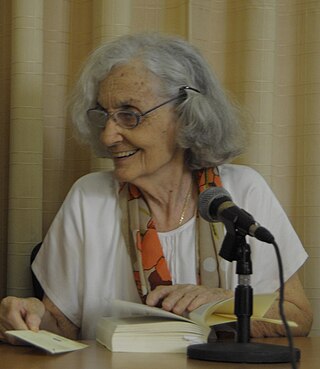
Josefina García-Marruz Badía, known artistically as Fina García Marruz, was a Cuban poet and literary researcher.

Pilar Paz Pasamar was a Spanish poet and writer whose work has been translated into Italian, Arabic, French, English and Chinese. She was a member of the Cádiz branch of the 1950s poetic generation. She was a member of the Real Academia Hispano Americana de Cádiz since 1963. Her awards and honors include second place from the Premio Adonáis de Poesía for "Los buenos días" (1954), Adoptive Daughter of the city of Cádiz (2005), Meridiana Prize of the Andalusian Institute of Women (2005), included in the section "Own Names" of the Instituto Cervantes, and Author of the Year by the Andalusian Center of Letters of the Junta de Andalucía (2015). The city council of her hometown annually awards the Pilar Paz Pasamar Prize for short stories and poetry by women.

Guadalupe Grande Aguirre was a Spanish poet. She had a degree in social anthropology from the Complutense University of Madrid.

Keila Vall de la Ville is a Venezuelan author living in the United States. She is the author the 2016 novel Los días animales (2016) which received the International Latino Book Awards for Best Novel in 2018 and has been translated into English as The Animal Days (2021). Vall de la Ville's 2007 short story collection Ana no duerme (2007) was finalist in Venezuela's Concurso Nacional de Autores Inéditos. She has published the poetry book Viaje legado (2016), the short story collection Ana no duerme y otros cuentos (2016) and has edited the forthcoming anthology Between the Breath and the Abyss: Poetics on Beauty, a compilation of essays and poems by thirty-three contemporary poets on the subject of Beauty. Her fiction and non-fiction work is included in several anthologies. She collaborates with El Nacional's Papel Literario del Diario El Nacional, Viceversa Magazine and Prodavinci, among other digital media.
José Juan Arrom was a leading authority on Latin American cultural studies and a pioneer in shaping the field in the United States at a time when most Spanish departments mainly taught about peninsular Spain. He is particularly well-known for his studies of Latin American theater, Cuban culture and lexicology, and the myths of the pre-Columbian inhabitants of the Caribbean. He was a professor of Latin American Literature at Yale University for nearly 40 years.
Manuel Álvarez Ortega was a Spanish poet, translator, writer, and veterinarian. He was the director and founder of the journal Aglae, which circulated between 1949 and 1954. He wrote many of his works in Madrid, the city where he lived starting in 1951.